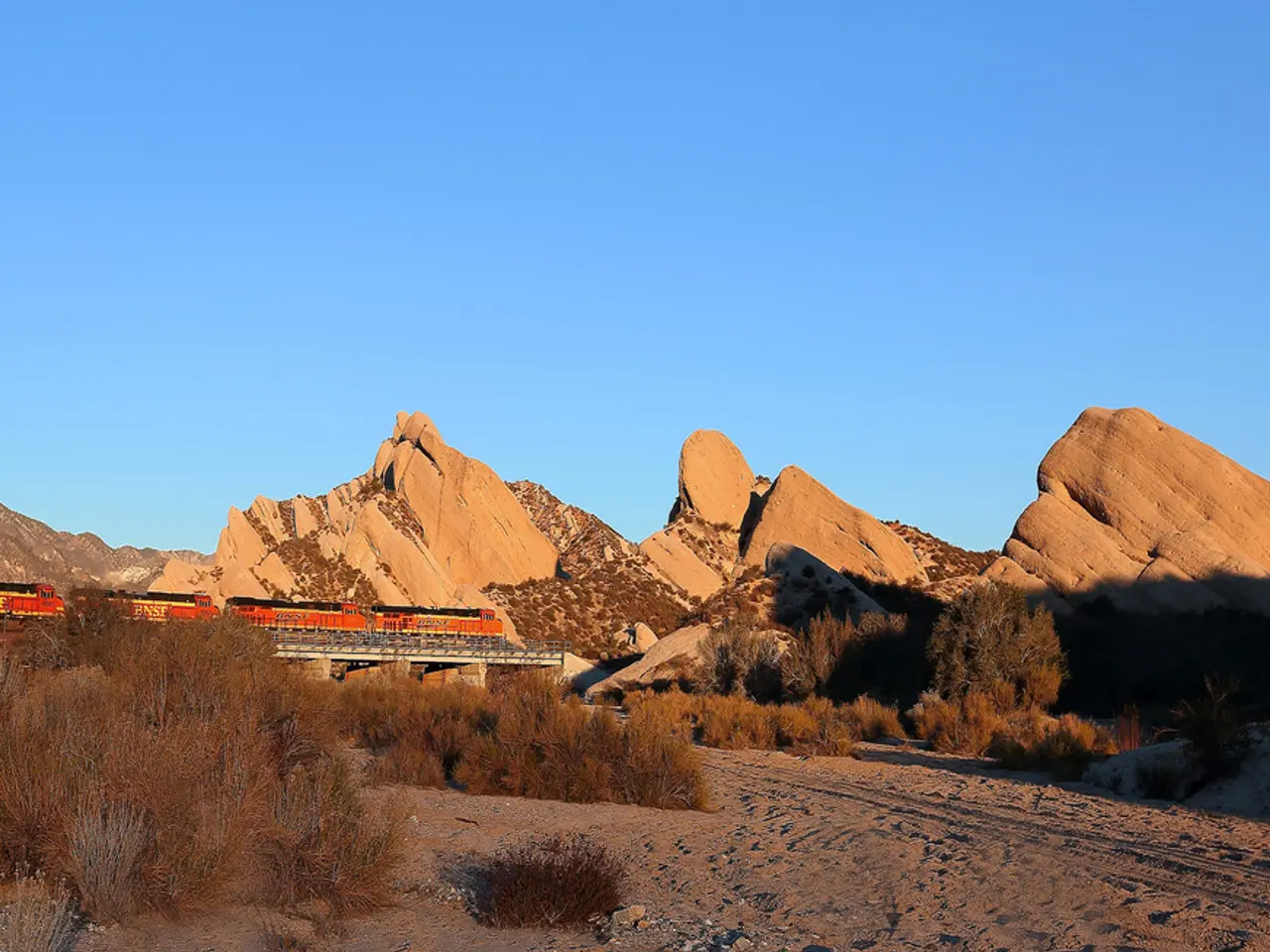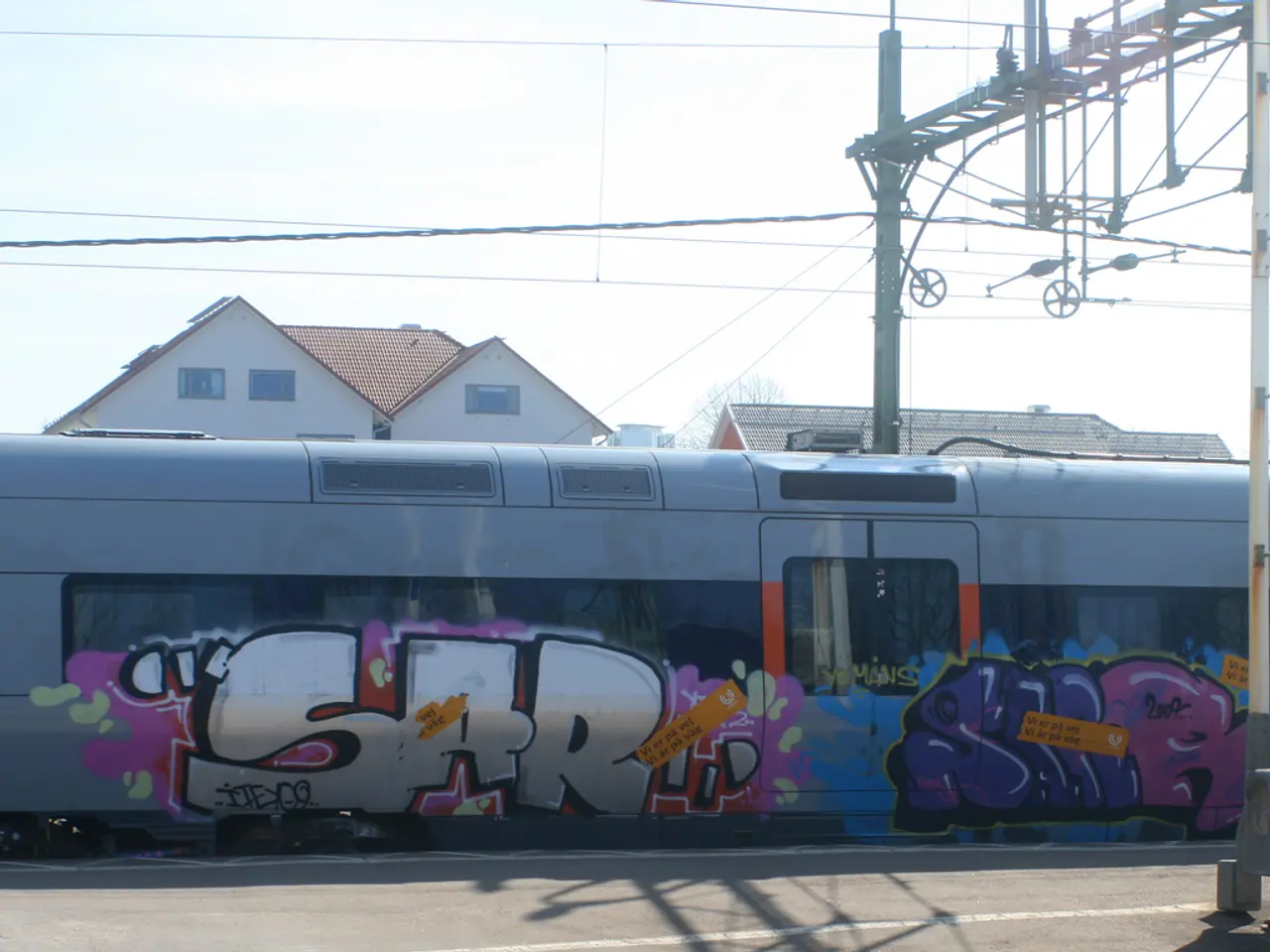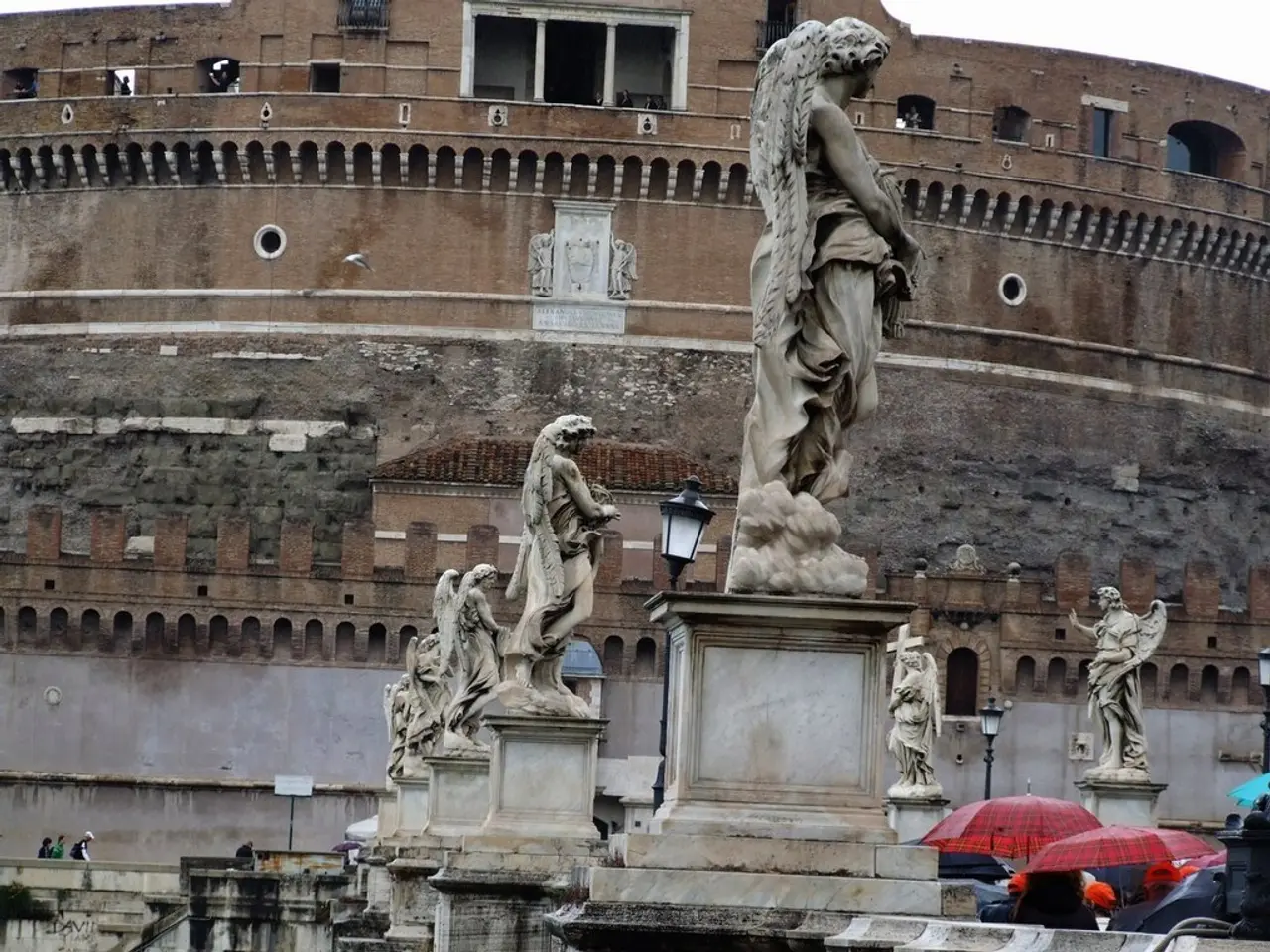Train accident in Germany resulted from a landslide triggered by heavy rainfall
In the small town of Riedlingen, Baden-Württemberg, Germany, a tragic train accident occurred on Sunday, July 27, 2025. The accident, which took place at around 6:10 pm, left three fatalities and between 37 to 50 injured passengers, some seriously [1][2][3][4][5].
The victims of the accident included the 32-year-old train driver, a 36-year-old railway apprentice, and a 70-year-old passenger. The exact number of injured passengers varies slightly among reports, with one stating 37 injured and others citing around 41 to 50 people injured.
The cause of the accident appears to be a landslide triggered by heavy rain and a sewage shaft overflow, which buried the tracks and resulted in the derailment. Rescue teams have been working extensively at the site, with plans to use heavy cranes to lift the derailed carriages. As of the last updates immediately following the accident, the railway line was blocked due to the derailed train and debris, and efforts were ongoing to clear the site. The line remains closed as of Monday morning, with replacement buses provided for passengers [1][3].
German Chancellor Friedrich Merz expressed his condolences to the families of those killed in the accident and asked the interior and transport ministers to provide emergency services with all necessary support. Deutsche Bahn CEO Richard Lutz is traveling to Riedlingen to assess the situation and thank emergency services for their efforts [6].
This accident marks a grim reminder of Germany's deadliest rail accident, which occurred in 1998 when a high-speed train derailed in Eschede, killing 101 people. Thunderstorms moved over the region in the early evening hours, according to the German Weather Service (DWD), contributing to the heavy rain that may have caused the landslide.
Authorities are currently investigating the circumstances of the accident and have suspended traffic over a 40-kilometre stretch of the route. Initial investigations suggest that heavy rain may have caused a landslide, leading to the derailment of two train carriages.
The German government has pledged to invest several hundred billion euros to modernize infrastructure over the next few years in response to criticism of the outdated infrastructure that frequently causes train delays and technical problems. This latest accident is a stark reminder of the need for such investment.
In June 2022, a similar incident occurred near a Bavarian Alpine resort, where a train derailed, killing four people and injuring dozens. Helicopters were dispatched to transport injured passengers to local hospitals. German rail operator Deutsche Bahn confirmed several deaths and numerous injuries due to the accident.
References:
- AFP
- DPA
- BBC
- Deutsche Welle
- The Guardian
- Reuters
- The climate-change induced heavy rain in Germany may be linked to the tragic train accident in Riedlingen, suggesting a need for more emphasis on environmental-science to mitigate such disasters.
- The accident has sparked discussions in political circles about the need for policy-and-legislation to improve infrastructure, particularly in the field of space-and-astronomy, to ensure safety and prevent similar accidents in the future.
- As the investigation into the accident continues, some news outlets are reporting an increase in car-accidents and fires due to the stormy weather, raising concerns about crime-and-justice and the overall general-news situation in the region.
- The German government's response to the train accident, including the deployment of emergency services and the pledge to invest in infrastructure modernization, demonstrates the intricate relationship between war-and-conflicts (in terms of the pressure on resources and the need for swift action) and policy-and-legislation.
- As German Chancellor Friedrich Merz and Deutsche Bahn CEO Richard Lutz visit the site of the accident, questions about migration (particularly the impact on travel and transportation) and its role in shaping the nation's policies are likely to arise.
- The aftermath of the train accident serves as a grim reminder that despite advancements in science and technology, accidents can still occur, underscoring the importance of staying informed about various aspects of society, including war-and-conflicts, politics, and general-news.







